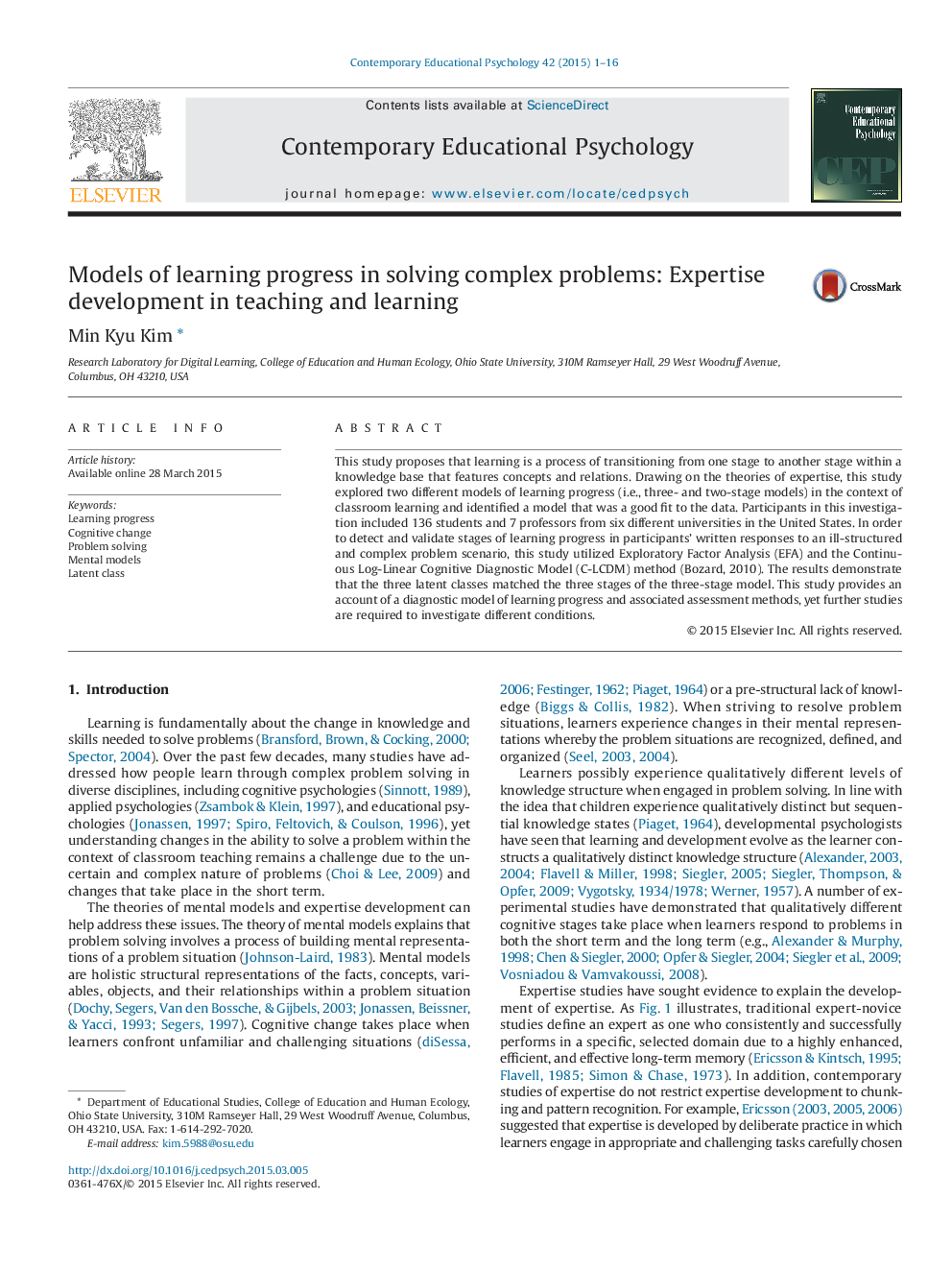| Article ID | Journal | Published Year | Pages | File Type |
|---|---|---|---|---|
| 352544 | Contemporary Educational Psychology | 2015 | 16 Pages |
•The current study shifts the focus of expertise development to problem-solving situations (i.e., task level) in the classroom and examines how short-term changes can lead to expertise.•The current study explored potential models of learning progress in solving ill-structured, complex problem situations in a classroom setting.•One hundred forty-three written responses to a problem situation were analyzed to validate the model.•The validation analysis using C-LCDM demonstrated that the three-stage model better explained cognitive changes in solving complex problems.
This study proposes that learning is a process of transitioning from one stage to another stage within a knowledge base that features concepts and relations. Drawing on the theories of expertise, this study explored two different models of learning progress (i.e., three- and two-stage models) in the context of classroom learning and identified a model that was a good fit to the data. Participants in this investigation included 136 students and 7 professors from six different universities in the United States. In order to detect and validate stages of learning progress in participants' written responses to an ill-structured and complex problem scenario, this study utilized Exploratory Factor Analysis (EFA) and the Continuous Log-Linear Cognitive Diagnostic Model (C-LCDM) method (Bozard, 2010). The results demonstrate that the three latent classes matched the three stages of the three-stage model. This study provides an account of a diagnostic model of learning progress and associated assessment methods, yet further studies are required to investigate different conditions.
